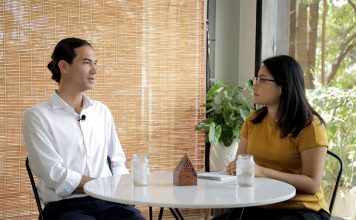The Ministry of Commerce is planning a meeting with public and private actors to discuss the revocation of the European Union’s Everything-but-arms (EBA) deal and to find ways to diminish its impact on the economy, the ministry said in a press release.

The ministry’s statement, issued on Monday, sought to qualm fears regarding the potential annulment of Cambodia’s preferential trade status with the EU.
The European bloc on Monday started the process that could lead to the temporary suspension of Cambodia’s preferential access to the EU market under the EBA trade scheme, launching a six-month period of intensive monitoring and engagement with the Cambodian authorities.
The ministry said the government has been preparing for the suspension of the EBA deal by carrying out deep reforms in ministries and institutions that seek to make the country’s business sector and the manufacturing and export industries more competitive.
“By reforming ministries and institutions, the government will enhance the country’s competitiveness and self-reliance,” the ministry said.
“The Ministry of Commerce will soon hold a roundtable discussion in which all stakeholders will participate,” it added. The statement did not provide a specific date for the meeting and officials at the Ministry of Commerce could not be reached for comment yesterday.
The EU market now accounts for about 40 percent of Cambodia’s exports. Between 2011 and 2016 exports to the EU rose by 227 percent, reaching $5.77 billion in value in 2017 alone.
Stephen Higgins, managing partner of consulting firm Mekong Strategic Partner, said the government must take EU’s demands seriously.
“This is yet another ‘shot across the bow’ by the EU, and it reiterates how serious they are regarding this matter.
“The EU is making clear that access to the EBA programme is a privilege, not a right, and if the government wants to continue availing of that privilege, it will need to respond positively to what the EU is seeking,” he said.
Regarding the government’s so-called ‘National Independence Policy’, he said that, “The government’s moves to improve competitiveness are welcomed, however they are unlikely to offset the impact of losing EBA privileges.
“It’s not just the direct impact of losing EBA privileges that concerns me, it’s also the reputational impact which will have negative consequences,” he added.
Hiroshi Suzuki, CEO and chief economist at the Business Research Institute for Cambodia (BRIC), said he was deeply concerned about the issue and hoped both parties could find a constructive solution.
“I am stunned by the EU’s hard stance on this issue. The suspension of the EBA would be a great threat to the Cambodian economy,” he said.
“I hope both sides can discuss the issue carefully and will take any actions necessary to avoid the suspension of the deal or, at least, to mitigate the effects of such suspension on the local economy, especially for workers in the garment sector,” he added.
Prime Minister Hun Sen on Tuesday, one day after the EU announced the beginning of the withdrawal process, wrote on his official Facebook page that he will not trade the country’s independence and sovereignty for trade privileges, noting that the Cambodian economy was healthy.
He said the Kingdom’s political, social, and economic situation has been improving and that tax revenue is gradually increasing.
“Cambodia cannot depend on foreign support and the country must not exchange its independence and sovereignty for anything,” he said. “However, we want to be good friends with partner countries that want to see Cambodia grow without interference in its internal affairs.
“Cambodia’s economy, which was previously hit by sanctions and pressure, is now growing and becoming stronger.
“I would like to thank businesspeople, traders and investors for fulfilling their tax obligations and expanding trade and investment in the country,” the premier added.







